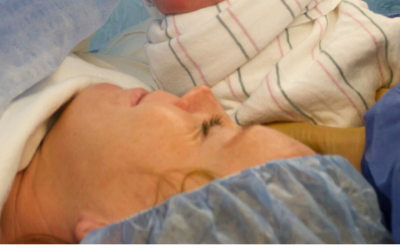
The value of maternal echocardiography after delivery in patients with severe preeclampsia
Echocardiography, commonly referred to as cardiac ultrasound or an “echo”, generates visual images of the heart known as echocardiograms. This imaging technique is especially informative during the peripartum period, the time encompassing before, during, and immediately after pregnancy. Preeclampsia is associated with an increased risk of cardiovascular disease which can show up in an echo.
A study conducted at NYU Langone Hospital aimed to assess the impact of routine postpartum echocardiograms on the management of patients diagnosed with severe preeclampsia. Researchers compared two groups: those who received echocardiograms after delivery and those who did not. The researchers wanted to see if having an echocardiogram affected hospital stay length, use of diuretics, adjustments in antihypertensive medication, and readmission rates.
The study included 356 patients, with 145 undergoing postpartum echocardiograms. Findings showed that patients who received echocardiograms had longer hospital stays (median of 5 days compared to 4), were more likely to receive diuretics, and had increased adjustments in their antihypertensive medication dosage. These patients were also more likely to be readmitted.
Further analysis within the echocardiogram group revealed that those with abnormal echo results experienced even longer hospital stays and a greater likelihood of receiving diuretics. However, there was no significant difference in the adjustment of antihypertensive medications or readmission rates between those with normal and abnormal echo results.
The study suggests that echocardiograms are often ordered for patients displaying more severe symptoms of preeclampsia, rather than the echocardiograms themselves prompting changes in management.
Take Home Message: The results indicate that postpartum echocardiograms can help identify patients with severe preeclampsia who may benefit from more intensive management strategies. Future research is encouraged to focus on detailed analyses of cardiac structure and function in these patients, which would require a larger sample size to enhance findings.
Link: https://www.ajog.org/article/S0002-9378(24)00450-2/pdf
Citation: Kantorowska, A., Corbo, A. M., Akerman, M. B., Gubernikoff, G., Kinzler, W. L., Vintzileos, A. M., & Rekawek, P. (2024). The value of maternal echocardiography after delivery in patients with severe preeclampsia. American Journal of Obstetrics and Gynecology. https://doi.org/10.1016/j.ajog.2024.03.021
Related Articles

Your story is needed to improve outcomes for moms like you. Add your voice to critical preeclampsia research to ensure that every story is heard.

Frequently asked questions about the Preeclampsia Registry, a patient-driven registry and biobank.

The Preeclampsia Foundation offers research funding, study recruitment, and other patient engagement services to researchers.

We provide research grant funding to advance progress towards detection, prevention, or treatment of preeclampsia, HELLP syndrome, and other hypertensive disorders of pregnancy.

How does preeclampsia affect health after pregnancy? Preeclampsia doesn’t always end with delivery. It is now recognized as an early warning sign for future cardiovascular disease. Women who h...

Recent findings in preeclampsia research have shown that preeclampsia likely has at least two variants – an early onset and a late onset variant. Early onset is typically defined as before 34 we...

Preeclampsia is a pregnancy complication marked by new-onset high blood pressure and signs of stress on organs such as the kidneys, liver, and brain. While much attention is often given to preterm dis...

Preeclampsia is a serious problem that can happen during pregnancy. It often affects the brain and can cause headaches, vision problems, strong reflexes, and seizures (called eclampsia). In this study...

Pregnancy offers a unique window into a woman’s future heart and cardiovascular health. Conditions such as hypertensive disorders of pregnancy (HDP) which include gestational hypertension, preec...



